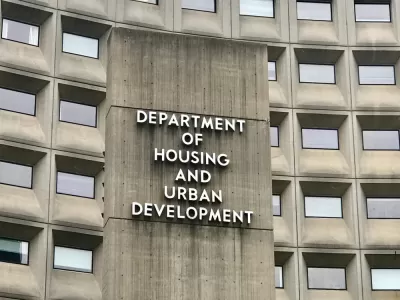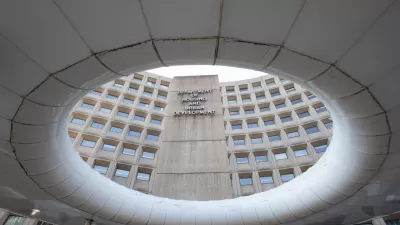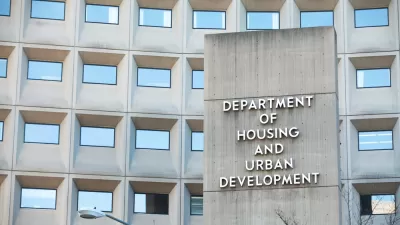The department is proposing an updated version of the Affirmatively Furthering Fair Housing rule, which requires local governments to take action to end residential segregation.

In an opinion piece published on CNN.com, Department of Housing and Urban Development Secretary Marcia L. Fudge explains the importance of the Affirmatively Furthering Fair Housing rule, a mandate aimed at furthering the Fair Housing Act that was ended by the Trump administration in 2020.
The rule “requires HUD, and those who receive our funding, to take proactive and meaningful action to overcome patterns of segregation, to promote fair housing choice, eliminate disparities in housing-related opportunities and foster inclusive communities that are free from discrimination,” Fudge explains. Now, the Biden administration is proposing an updated version “that builds on the successes of the 2015 rule and proposes refinements to make it stronger, based on a deliberative and thoughtful engagement process.”
According to Fudge, the proposal would enable state and local leaders to advance fair housing and create mechanisms to leverage federal funding with other sources. “Most importantly, the proposed rule would give the community a seat at the table in our ongoing work to guarantee fair housing, while adding accountability mechanisms to ensure that recipients of HUD funding comply with their duty to affirmatively further fair housing.”
While Trump called the previous AFFH rule an attempt to “abolish the suburbs,” fair housing advocates see it as a way for the federal government to ensure that cities and states examine any potential civil rights violations and develop plans to address historical inequities in their housing markets. The 2015 rule established a concrete framework for compliance that included an assessment some communities found too onerous. An article in Bloomberg CityLab explains that the proposed Biden rule, which calls on municipalities to produce local equity plans every five years, will give local officials greater flexibility.
FULL STORY: Opinion: HUD Secretary on how to make fair housing a reality

Trump Administration Could Effectively End Housing Voucher Program
Federal officials are eyeing major cuts to the Section 8 program that helps millions of low-income households pay rent.

Planetizen Federal Action Tracker
A weekly monitor of how Trump’s orders and actions are impacting planners and planning in America.

Ken Jennings Launches Transit Web Series
The Jeopardy champ wants you to ride public transit.

Opinion: Transit Agencies Must View Service Cuts as Last Resort
Reducing service could cripple transit systems by pushing more riders to consider car ownership, making future recovery even less certain.

‘Smart Surfaces’ Policy Guide Offers Advice for Building and Maintaining Urban Tree Canopies
Healthy, robust tree canopies can reduce the impacts of extreme heat and improve air quality.

New Jersey Lawsuit Targets Rent-Setting Algorithms
The state of New Jersey is taking legal action against landlords and companies that engage in what the state’s Attorney General alleges is illegal rent fixing.
Urban Design for Planners 1: Software Tools
This six-course series explores essential urban design concepts using open source software and equips planners with the tools they need to participate fully in the urban design process.
Planning for Universal Design
Learn the tools for implementing Universal Design in planning regulations.
Heyer Gruel & Associates PA
Ada County Highway District
Institute for Housing and Urban Development Studies (IHS)
City of Grandview
Harvard GSD Executive Education
Toledo-Lucas County Plan Commissions
Salt Lake City
NYU Wagner Graduate School of Public Service





























